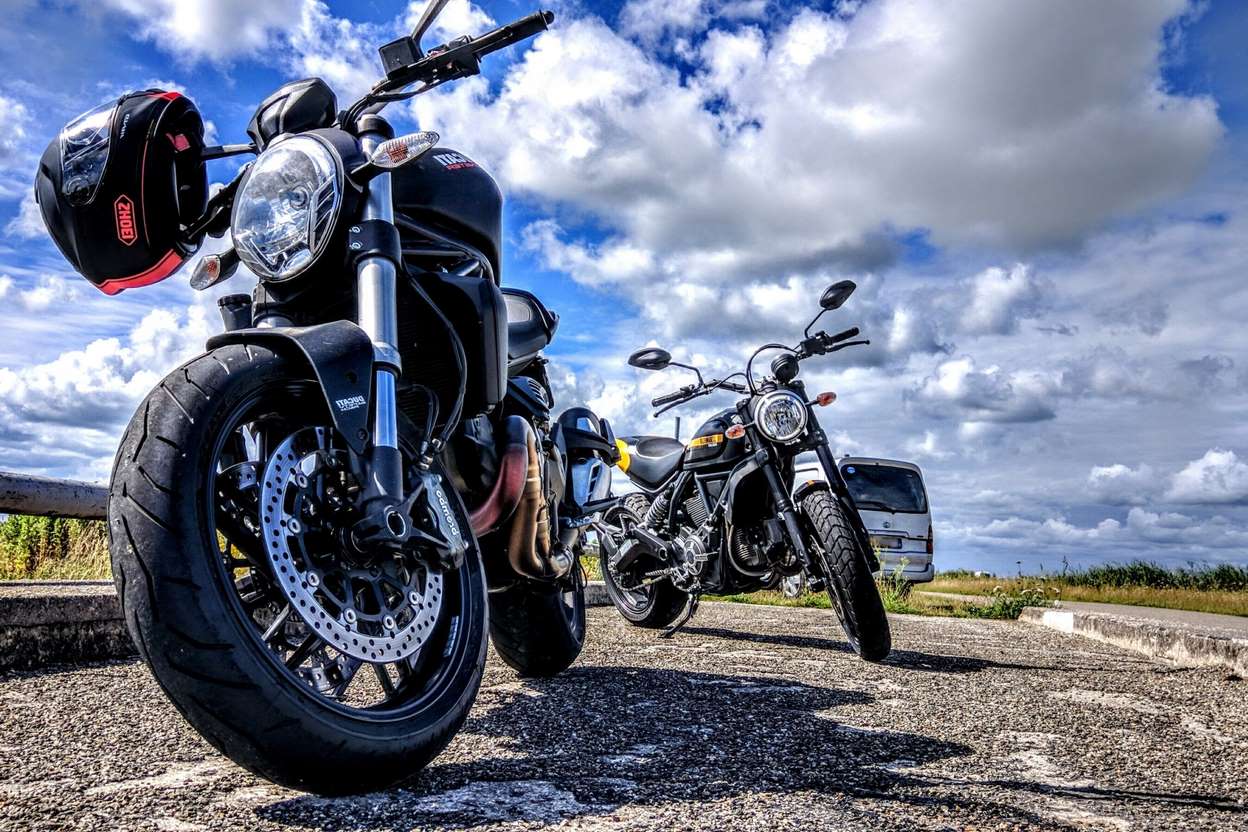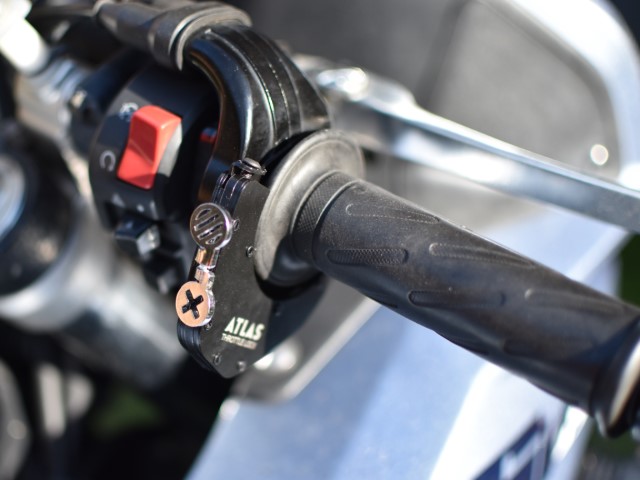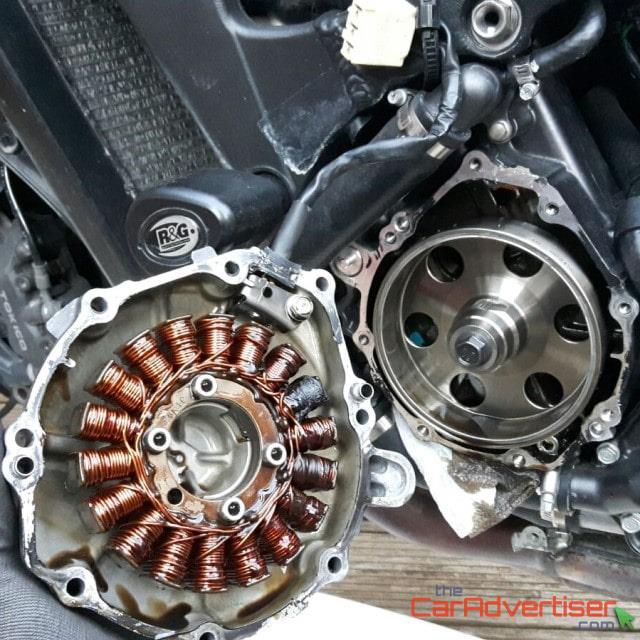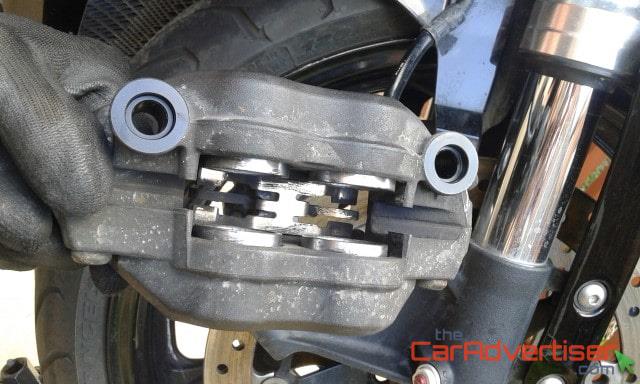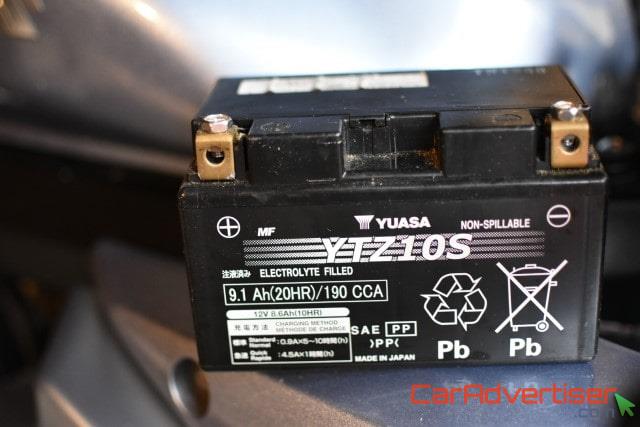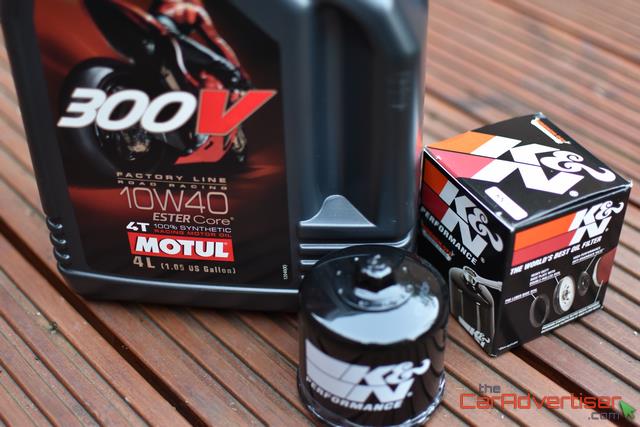
How to get cheap motorcycle insurance?
How to get cheap motorcycle insurance is a common question amongst motorcycle owners, especially young riders. Spoiler alert: there is no golden bullet and always be honest when taking out a new policy as lying invalidates the policy, BUT there are some factors in your control that can influence the premium!
This articles aims to clarify the significance of different questions on a motorcycle insurance form as well as to answer common questions from new motorcycle riders and is intended as a general guide only. Always read the small-print before taking out an insurance policy!
Facts
The following circumstances are facts of life you must declare correctly
- Your Age
- Address
- Home owner (or not)
- How long license is held
- Accidents and claims in the past 5 years
- Motoring convictions in the past 5 years
Worth noting that most companies charge an administration fee to update an ongoing policy, therefore it'll work out cheaper to wait for these circumstances to change (e.g. moving house) if possible before taking out a new cover (unless it's a renewal).
How I can reduce my motorcycle insurance?
The following list is ordered in priority
Make, model and price of motorcycle
May be obvious, but this is the base deciding factor in your annual premium. If you are a young and/or new rider it is a good idea to get quotes before jumping into buying a cool looking bike.
Does engine size affect insurance?
The engine size is not directly related to insurance prices, it is the risk factor and price of a specific model (age and mileage are factors influencing price). It is more likely to get a substantially higher quote for a 125 cc sporty-looking leaner-legal bike than a larger capacity, e.g 650 cc sports-tourer. Same principle goes for engine power: to insure a Yamaha YZF-R6 supersport (600 cc, approx. 125 horsepower and 70 Nm torque) would cost much more than a Suzuki SV1000S (998cc, 120 horsepower and 120 Nm torque) of the same price.
Choose the suitable type of cover for your needs
Third party only
Third party only insurance cover does not carry any excess to pay in case of a claim, but does not protect against fire, theft or damages caused to the insured motorcycle in case of a fault accident.
When should I take out third party only insurance?
Low-value motorcycles may be better off with third party insurance, especially if there is a large difference between other covers that also contain a high excess. As this type of insurance does not cover any damage caused to your bike, yet the value still influences your annual premium I'd recommend declaring the vehicle value at a reasonable minimum to save on this annual expense. Consider the following example of a £1500 value motorcycle that can be insured third party only for £150 a year or £300 a year comprehensive with £500 total excess you'd effectively receive £850 in the event of a write-off, but you lose no claim bonuses (unless protected), have a claim on your record that can affect your following motorcycle premiums for the next 5 years.
Third party fire and theft (TPFT)
Third party fire and theft insurance will cover your motorcycle costs in case of fire or theft, but not in fault-accident.
When should I take out TPFT insurance?
Recommended only for more experienced riders only where the risk of theft is higher than a fault-accident and also the premium and excess is reasonably cheaper than comprehensive cover.
Comprehensive motorcycle insurance
Full insurance that covers damages to your motorcycle even when at fault (as well as fire or theft).
When should I take out comprehensive insurance?
In most cases for every valuable motorcycle for peace of mind. In some cases comprehensive cover is cheaper than TPFT.
Where motorcycle is kept overnight
This factor shows the significance in desirability of your motorbike for thieves. While keeping a less flashy, lower value motorcycle on the road, driveway or garage won't be much different for insurance, but you could see a four-fold jump in case of a brand new supersport bike (e.g. from £500 to £2000/annum). Some insurance companies accept a lockable wooden structure (e.g. shed) as garage, while others require a concrete or brick building.
Pay annually
Paying monthly always works out more expensive than paying the annual price upfront. Monthly payments may be the only option for younger riders where the annual costs are just simply too high to pay at once.
Exclude pillion passengers
Excluding pillion passengers (if you never carry one) will definitely reflect on the price of your motorcycle insurance.
Annual mileage
This can greatly affect your annual premium if you are an occasional or seasonal rider, so do a quick calculation of your expected mileage upfront (keeping in mind commuting distances if applicable) and allow for legroom as changing it after the policy has started will incur additional costs (e.g. £30-50 change of policy fee) on top of the price difference (which can also be higher with a policy in effect). Prices are not affected as much over 10000 miles a year as for example between 3000 and 5000.
Social or commuting
Commuting policies are always higher even if you do the same mileage (probably due to rush hour traffic).
Voluntary excess
Comprehensive and Third Party Fire and Theft (TPFT) covers include a cost that you must pay as the first part of a fault-claim and the total sum consist of mandatory and voluntary excesses. This does not apply to third party vehicle insurance as there is no excess. You can adjust the amount of voluntary excess from £0 to £500, but keep in mind the mandatory excess: keep the total at a reasonable amount you can afford to pay in case of a fault-accident, also it just does not make sense to increase a £200 voluntary excess to £500 if it reduces your annual premium just by £20.
Do I need to pay excess if not at fault?
No. Always the party at fault is liable to cover the cost of damages. In certain cases both parties can be at fault (50-50%) and share the costs.
Relationship status
You don't need to be married to see a reduction in your premium. Insurance tends to be cheaper for people in common-law relationships as opposed to single individuals as providers see them as lower risk drivers.
Occupation
If you work in a specific sector and you are also a company director there can be a difference in how you declare your occupation (e.g. Company Director vs Software Developer).
Security devices
May sound strange, but security devices do not seem to have much affect on insurance costs, but needless to say it's in one's best interest to keep the motorcycle as safe as possible. Don't shoot yourself in the foot by declaring to keep your motorcycle chained to a ground anchor overnight if your premium costs the same with a simple disc lock, because your insurance becomes invalid when you forget to actually chain it down and you will not be compensated for loss.
What affects motorcycle insurance?
One might think every question in the application form does, but some don't (really) have any impact:
- Car ownership
- Years of car NCB (no claim bonus)
- Secure markings (Datatag or Smartwater)
Which optional extras should I take out with my motorcycle insurance?
Bonus protection
Normally a minimum of 4 years no claim bonus is required for this option to become available for motorcycle owners. Definition of bonus protection can differ between providers, but usually it either covers up to 1 claim a year or 2 claims in 2 years without the rider's bonus being affected (apart from not gaining an additional year of no claim bonus during for the current policy).
What happens if you don't protect your NCB?
In most cases you are likely to lose 2 years NCB from the first 5 or fall back to 5 if more (yes, you can fall back to 5 years from e.g. 10 in case of a claim), but find exact details in the small-print of your policy.
Legal cover
Legal cover provides assistance of a solicitor in case of legal disputes with other motorists in court cases. It normally costs £20 extra a year on top of annual premium, which easily makes it worth with lawyers charging £500+/hour.
Personal injury cover
No insurance covers your injuries by default and considering the likelihood of injuries when falling off a motorbike I'd recommend spending that £20 a year on this optional extra. You may not need this if you have other accident/health insurance policies.
Helmet and leathers cover
Motorcycle gear is not cheap and recommended to be discarded once involved in an accident as their protective qualities are greatly reduced. I wouldn't recommend the extra cost of this option if you're on a budget and wearing cheaper clothing, also you may need to be in possession of purchase receipts to validate your claim, so check the small print before paying for this extra.
What is GAP insurance?
Usually offered when the motorcycle is purchased from a dealership. Gap insurance reimburses the difference between the price paid for your motorcycle and the amount given by your insurance company in the event of a write-off. The fact that you don't need to accept the first amount offered by the insurance company and the normally high cost of this type of insurance makes it unnecessary in most cases.
Tips to reduce your motorcycle insurance
If you are young rider or just passed a CBT or A2 motorcycle test
- buy a less attractive, used (2-5 years old), cheaper, commuter bike (naked, sport touring or cruiser) at first rather than a sportbike (it is much less likely to be stolen and you won't mind the damage as much if you slip either)
- do not try to overvalue the bike, because in case of claims the insurance company will make an estimate for the current market value
- consider the the pros and cons of a third party insurance and compare prices
- If not necessary: do not commute on it, do not carry passengers (applicable to full licence only) and ride less than 3-4000 miles a year
- think ahead: changing an active policy will be subject to additional handling charges
General advice for everyone
- keep the motorcycle garaged (if possible)
- pay the premium upfront
- ride sensibly, accumulated points on your license will increase your premium for 5 years (dvla can remove them after 4, but insurance companies ask for 5)
- do not make claims unnecessarily (e.g. minor bike damage, but no third party involved)
- do not cancel a policy approaching its renewal date as you will receive no refund and lose gaining a NCB
- be honest about everything in the application
Multiple motorcycles in household?
- earned no claim bonuses cannot be applied to multiple policies, so use them on the highest risk motorbike
- multiple policies may be more beneficial than a single multi-bike policy as claims for any motorcycle would affect the bonuses on that policy
- in the long term it may be more beneficial for each rider to have their own policy, earning no claim bonuses for themselves instead of insuring all bikes on the same person's name with additional riders
- take out policies that allow Riding Other Bikes: the person with oldest driving license, least claims and most no claim bonuses to insure the highest risk motorcycle
Common questions about motorcycle insurance
Must I have insurance if not riding?
Every vehicle in the UK must have a minimum level of third party insurance unless declared off the road (SORN). Find more information about uninsured vehicled on gov.uk website.
How much refund will I receive if I cancel my insurance?
Each policy varies, but in most cases if you cancel your new policy within 14 days your insurer will issue a nearly full refund after deducting a sum for the days the vehicle was covered. Past this period the maximum refund normally is 9 months, that decreases by each month the policy is in effect, then after 6 months the refundable amount usually becomes 0.
Can I ride other bikes with comprehensive cover?
Not always, check your policy. Keep in mind that this option always requires the other motorcycle to be already insured.
Can I use my no claim bonus on multiple vehicles?
Yes, but only a multi-vehicle policy.
Can I use my no claim bonus on multiple policies?
No. No claim bonuses can be applied to a single policy at a time (which can be a multi-vehicle policy). No claim bonuses are built up over the years as a reward for careful (and sometimes lucky) drivers that positively affect renewal prices. Multi-vehicle policies not always being an option (due to price or availability) can result in nonsensical quotes e.g. insuring a 1000 cc supersport (with e.g. 10 year bonus) becomes cheaper than a 125 cc learner legal (with no bonus as a second policy) for the same rider at the same address .
How can my insurance cost more than motorbike?
This question definitely comes up if you are under 25 and looking to buy a cheap, 15 year old GSX-R, R1 or any other supersport. Keep in mind that the most costly scenario is not total loss (theft) of the vehicle, but the potential damage caused in an accident to other vehicles, property and even people.
Shop around for motorcycle insurance
Motorcycle insurance comparison sites are not as common as car insurance ones, but one I'd recommend is The Bike Insurer. Read reviews before buying the cheapest one as some companies are just brokers, which means they do not handle with claims directly and in the unfortunate event of an accident your claim can get lost while being passed around between different companies which results in delays and frustration.
Did you find this article helpful?
Help the site grow with more content to reach a wider audience while keeping it free!
